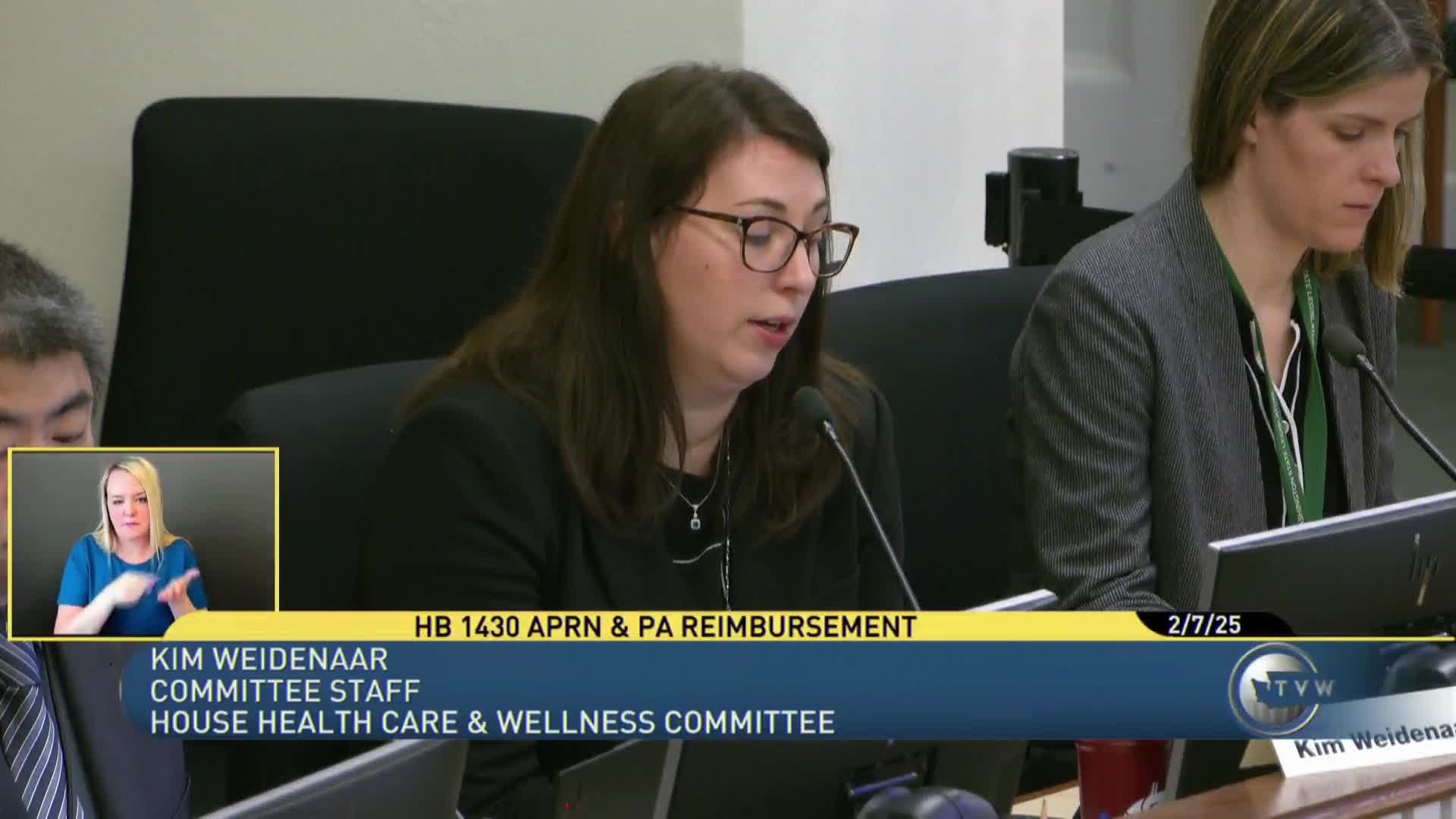Panel advances bill to require parity in reimbursement for APRNs and PAs in certain settings
Get AI-powered insights, summaries, and transcripts
Subscribe
Summary
Substitute House Bill 1430, which would require health carriers to reimburse APRNs and physician assistants at the same rate as physicians for specified services and settings, was reported out of committee after debate and amendment activity.
The House Health Care & Wellness Committee on Feb. 7 reported out substitute House Bill 1430 with a due‑pass recommendation after considering multiple amendments that narrowed the bill’s scope and clarified implementation details.
Committee staff described HB 1430 as a measure to require health plans to reimburse advanced practice registered nurses (APRNs) and physician assistants (PAs) the same as physicians for the same services in certain circumstances. Staff listed three proposed amendments: an amendment from Representative Marshall (week 10) that limited parity to primary care, mental health care, critical access hospitals, and rural/medically underserved clinics; an amendment from Representative Schmick (week 11) with a related geographic focus; and an amendment from Representative Simmons (week 12) that addressed non‑claims‑based payments and data collection by the Office of the Insurance Commissioner (OIC).
Representative Marshall, who moved amendment 10, said she supported parity in targeted settings but sought to limit public‑cost exposure by applying parity only where it fills care gaps. “My amendment would say that we would get the full reimbursement, but only in primary care, critical access hospitals, mental health care, but not necessarily where I work, which is surgical specialty,” she said. Amendment 10 failed on a voice vote. Amendment 12 — a technical language amendment requested by the Office of the Insurance Commissioner — was later adopted.
Supporters including sponsor Representative Simmons framed the bill as restoring parity that existed in part prior to 2013 and as a means to increase access in rural and underserved areas; opponents raised concerns about state employees and public‑plan parity and about fiscal impacts. After roll call and one member subsequently changing their vote, staff announced the substitute reported out on a 14‑5 tally. Substitute HB 1430 will move on for further consideration.
The committee record shows the final substitute included limits and clarifications from adopted amendments and added OIC‑requested data‑collection language.
